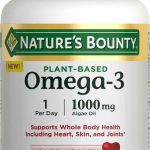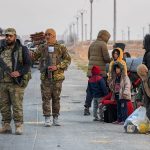As if worrying about colds, flu, and COVID-19 weren’t enough, another virus often goes unnoticed but demands attention: Respiratory Syncytial Virus (RSV). This virus may affect your baby’s breathing and, alarmingly, makes them 16x more likely to be hospitalized than the flu.
In older children and young, healthy adults, RSV might bring on a runny nose. However, in young babies, particularly under six months of age, it can lead to dangerous infections like bronchiolitis and pneumonia. So, how do you know if your baby is just coming down with a little cold or something more serious like RSV lung infection? It can be tricky to distinguish without the help of your pediatrician, as it often starts with typical cold symptoms such as coughing, sneezing, and nasal congestion. But as the virus progresses over a few days, watch for clear signs of RSV like wheezing and difficulty breathing.
The best course of action is to do everything you can to help prevent it. This involves practicing good hygiene, avoiding people who are sick, and getting an RSV preventative antibody for your child. Learn more about the key steps to help protect your baby against RSV.
Practice healthy hygiene
One of the easiest ways to stop the spread of RSV is through diligent hand washing. According to the CDC, you should wash your hands for at least 20 seconds with warm soap and water (about how long it takes to sing the “Happy Birthday” song twice). Also, make sure that anyone who interacts with your baby washes their hands thoroughly or uses alcohol-based hand sanitizers with at least 60% alcohol.
Wipe down shared surfaces

Since RSV can survive on some surfaces for several hours, regularly use a child-friendly disinfectant to wipe down surfaces and objects your baby frequently touches — including bouncers, cribs, and toys. RSV lives on soft surfaces like stuffed animals for shorter amounts of time, but it’s worth regularly throwing them in a hot water wash to take all precautions.
Avoid contact with sick individuals

Snuggling with your little one may feel irresistible, but RSV can quickly spread through sneezes and coughs, so limiting your baby’s exposure to crowds, other children, or anyone else with cold symptoms is critical. Take extra precautions during late fall through early spring when RSV cases peak, this can vary by local areas.
If it’s not feasible to keep the baby away from sick family members, older siblings and adults can wear a mask to help lower the risk of transmission. People with RSV can continue to spread the virus for about a week after they stop showing symptoms, so if a guest has recently gotten over the virus, it’s best to delay their visit until they’re fully in the clear.
Ask your pediatrician about Beyfortus (nirsevimab-alip) 50 mg and 100 mg injection

While your baby’s immune system is still developing, you can think of Beyfortus as a potential first line of defense against RSV. Recommended by the American Academy of Pediatrics, Beyfortus is given directly to your baby and provides preventative antibodies that offer fast-acting protection against serious lung infection caused by RSV. Beyfortus can help prevent serious RSV lung infections in babies under age 1 born during or entering their first RSV season or in those up to 24 months who remain at risk of severe RSV disease. Your child should not take Beyfortus if your child has a history of serious allergic reactions to nirsevimab-alip or any of the ingredients in Beyfortus.
Even if your baby comes in contact with RSV after receiving Beyfortus, the antibodies can help reduce complications like pneumonia. Beyfortus is part of the approved immunization schedule for babies and is covered by many health insurance plans. Ask your pediatrician about Beyfortus at your next wellness visit. Beyfortus may not protect all children. Please scroll to the bottom of the article to view Indication and Important Safety Information, including links to Full Prescribing and Patient Information.
With RSV season quickly approaching, give yourself peace of mind with informed healthcare decisions and learn more at beyfortus.com.
INDICATION
Beyfortus is a prescription medicine used to help prevent a serious lung disease caused by Respiratory Syncytial Virus (RSV) in:
- Newborns and babies under 1 year of age born during or entering their first RSV season.
- Children up to 24 months of age who remain at risk of severe RSV disease through their second RSV season.
IMPORTANT SAFETY INFORMATION
Your child should not take Beyfortus if your child has a history of serious allergic reactions to nirsevimab-alip or any of the ingredients in Beyfortus.
Before your child receives Beyfortus, tell your healthcare provider about all of your child’s medical conditions, including if your child:
- has ever had a reaction to Beyfortus.
- has bleeding or bruising problems. If your child has a problem with bleeding or bruises easily, an injection could cause a problem.
Tell your healthcare provider about all the medicines your child takes, including prescription and over-the-counter medicines, vitamins, and herbal supplements. Your infant should not receive a medicine called palivizumab if they have already received Beyfortus in the same RSV season.
Serious allergic reactions have happened with Beyfortus. Get medical help right away if your child has any of the following signs or symptoms of a serious allergic reaction:
- swelling of the face, mouth, or tongue
- difficulty swallowing or breathing
- unresponsiveness
- bluish color of skin, lips, or under fingernails
- muscle weakness
- severe rash, hives, or itching
The most common side effects of Beyfortus include rash and pain, swelling, or hardness at the site of your child’s injection. These are not all the possible side effects of Beyfortus. Call your healthcare provider if you have questions about side effects.
Please see full Prescribing Information, including Patient Information, for more details.
MAT-US-2407152- v1.0-08/2024







